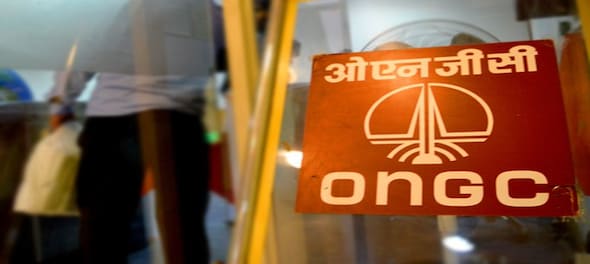
With a decline in India's crude oil production and natural gas output in FY20-21, the petroleum ministry has made its third attempt to get Oil and Natural Gas Corporation (ONGC) to privatise its oil and gas fields along with other infrastructures to raise production.
The Ministry of Petroleum and Natural Gas, on April 1, wrote to the India’s largest producer of oil and natural gas asking it to sell its stake in oil fields to private firms and get foreign partners in KG basin gas fields. The letter also sought to monetise existing infrastructure and hive off drilling and other services into a separate firm to increase production.
Amar Nath, additional secretary (exploration) in the Ministry of Petroleum and Natural Gas, in the letter addressed to ONGC Chairman and Managing Director Subhash Kumar, mentioned a seven-point action plan titled 'ONGC Way Forward'. The letter aimed to help the firm raise oil and gas production by one-third by 2023-24.
The action plan prompts ONGC to consider a stake sale in maturing fields such as Panna-Mukta and Ratna R-Series in western offshore and onshore fields such as Gandhar in Gujarat to private firms. The new plan also mentioned privatise 'non-performing' marginal fields.
The ministry wanted ONGC to bring in global players in gas-rich KG-DWN-98/2 block where output is slated to rise sharply by next year, Ashokenagar block in West Bengal and Deendayal block in the KG basin, which the firm bought from Gujarat government’s GSPC couple of years back, a PTI report stated.
The ministry also wanted the company to explore creating separate entities for drilling, well services, logging, work over services and data processing entities.
Earlier in October 2017, the Directorate General of Hydrocarbons, the ministry's technical arm, had identified 15 fields with a collective reserve of 791.2 million tonnes of crude oil and 333.46 billion cubic metres of gas, for handing over to private firms. According to the PTI report, there was strong opposition from ONGC against the privatisation.
A year later, 149 small and marginal fields of ONGC were identified for private and foreign companies on the grounds that the state-owned firm can focus only on big ones.
The plan went up to Cabinet, which on February 19, 2019, decided to bid out 64 marginal oil fields. But the tender received a lukewarm response, the report said citing sources. Ultimately, ONGC was allowed to retain 49 fields on the condition that their performance would be strictly monitored for three years.
In its April 1 letter, the ministry said as two years have elapsed after the Cabinet decision, non-performing fields need to be identified for divestment and privatisation. It also asked to ease bid terms such as lowering the royalty rates and complete marketing and pricing freedom.
The action plan wanted ONGC to identify maturing fields such as Panna-Mukta, Ratna and R-Series in western offshore and Gandhar in Gujarat as well as Daman in western offshore to sell stakes in medium-sized producing fields.
The April 1 note asked to reduce dependence on import of crude oil and gas. The ministry has set the domestic production target of 40 million tonnes of crude oil and 50 billion cubic metres (bcm) of natural gas by 2023-24.
ONGC produced 20.2 million tonnes of crude oil in 2020-21, down from 20.6 million tonnes in the previous year.
India’s crude oil production declined by 5.2 percent as private and public firms produced 30.5 million tonnes this fiscal compared to 32.17 million tonnes produced during the same period last year due to the COVID-19 pandemic restrictions and cost-intensive process of extracting oil.
First Published: Apr 27, 2021 8:39 PM IST
Check out our in-depth Market Coverage, Business News & get real-time Stock Market Updates on CNBC-TV18. Also, Watch our channels CNBC-TV18, CNBC Awaaz and CNBC Bajar Live on-the-go!


EVM row: Meet Ravindra Waikar, Shiv Sena MP at the centre of controversy
Jun 17, 2024 1:26 PM
EVM unlocking controversy in Mumbai North West Lok Sabha seat — What we know so far
Jun 17, 2024 10:25 AM

